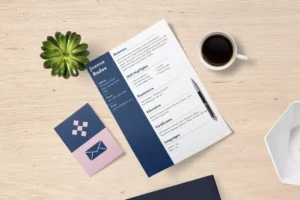
you can have for your career, a professional resume! Here is a list to best answer your dilemma:
Initially you should include your name, contact details, a professional summary of who you are, your education and/or qualifications, and your employment history. Others falling into new and specific categories like hobbies and interest, references, seminars attended are all dependent on how it will add weight to your resume. For example, there is no reason to include that you have attended a seminar about handling power tools in fabrication if you are applying to be a Chef. Other important things to include are core competencies and of course – key achievements, which really make you stand out from the other applicants.
In all, creating a “point of difference” with your resume is crucial. An employer really wants to know why they should pick you from the 400 other people that have applied for the same position and therefore, things like Key Achievement provide you with a competitive edge.
We say that the most acceptable number of years to go back when detailing employment history is 10 – 15 years. Unless it is a re-application of a totally different role you had way, way back and you wanted to highlight some key achievements from before, then it will be more valuable to go beyond and include every positive bit of your career.
Outline each role and company in chronological order, starting with the most recent, including the dates you have been there. Make sure to include the most relevant career achievements to the role you are applying for.
The number of pages depend on how much experience you have and what level of employee/professional you are. If you’re an entry-level candidate, a 2-page resume should be sufficient. On the other hand, for more experienced candidates and academic resumes, we recommend a maximum of 5 pages which is kept straightforward. You can always play with the font sizes and types to achieve the perfect length.
Please remember to focus on the quality , rather than the quantity. You are better of having one extra page in a resume and providing valuable information to the recruiter which will make you stand out from the other applicants, then not including that information simply because of page count.
If you only provide the relevant roles you had over the years, especially when you have had various career changes, this will only result to employment gaps in your resume. It is better to include the previous roles even if they are not relevant but keep their duties to a minimum, in a way that only important duties and tasks are reflected. Don’t forget there are many “transferable skills” which might still be relevant, even if the role is very different.
A single resume is enough for over 95% of job seekers. However, you do need to tailor your resume to whatever position you are applying to and make sure that all transferable skills are mentioned and directly outlined in relevance to the new role.
If it’s a professional photo that goes well with the resume, then why not include it. Just take note that many recruitment agencies say that when you include a photo on resume, it enhances the possibility of discrimination and unconscious bias against the applicant. Some countries have high regard on this matter, and Australia is one of them. Also, in line with National Employment Standards, we don’t want any employer to discriminate and therefore, the focus of the resume should be on how you perform the role rather than how amazing you look.
Any personal data beyond your contact details should not be included in your resume. While some countries require to include the date of birth, we highly recommend to leave out important numbers that could allow anyone to steal your identity. No employer should make judgement based on your age, therefore by not including this – we eliminate any potential age biases.
Like what we have explained in adding a photograph, physical characteristics such as height, weight, eye and hair color, etc. will only open doors of possible accusations of discrimination against the company. Therefore, hiring managers prefer that you do not mention these things unless they are requirements for the role.
We strongly advise against any false information in resumes (what’s that, you used your friend as a reference?). Try to be honest in all aspects of your submission. As professional resume writers, we can work with the information you provide us to make you stand out and present professionally and we don’t need any false information, in order to be able to do that.
False information can also come to haunt you later down the track, not to mention ethical and legal implications.
Don’t sweat over your own resume – Leave it to the professionals with a brand new Professional Resume and Cover letter, customised to you! We will ensure that your new documents are professional, impactful and also in line with National best practice.
Contact us today at [email protected] or call 1300 174 435.


Brisbane Resume Professionals Level 1, Suite 325 241 Adelaide Street Brisbane QLD 4000
Call us: 1300 174 435
Email us: [email protected]